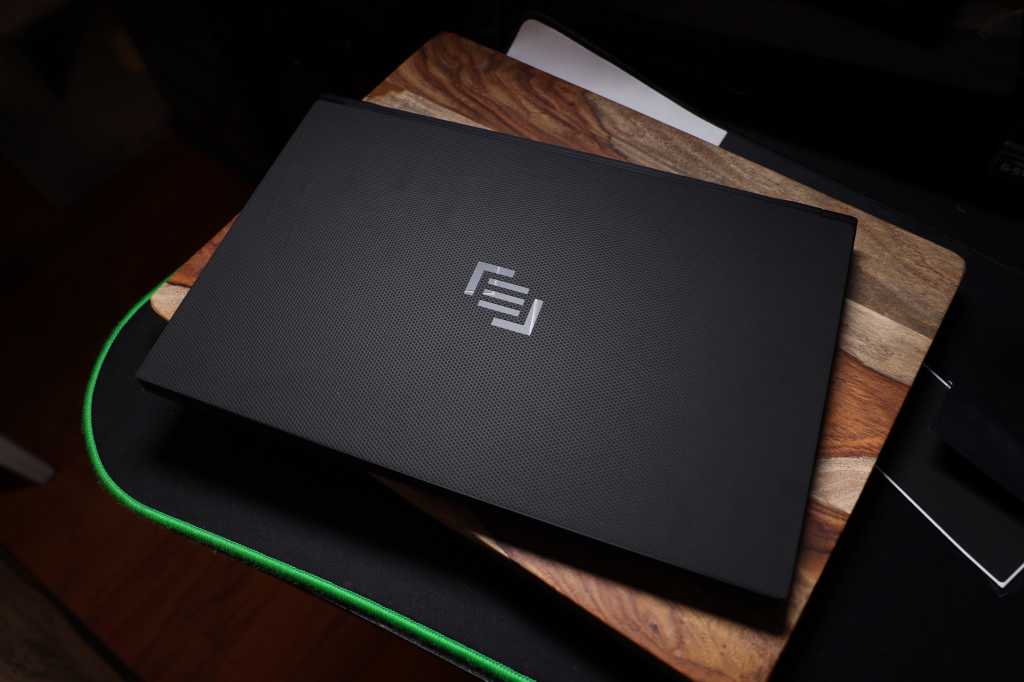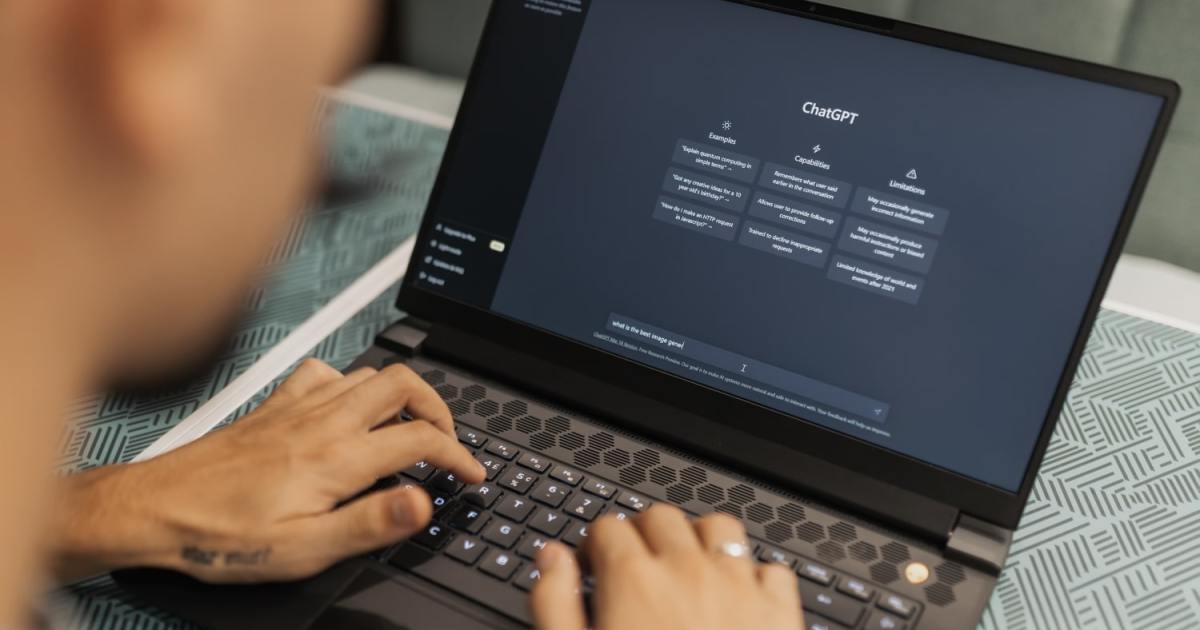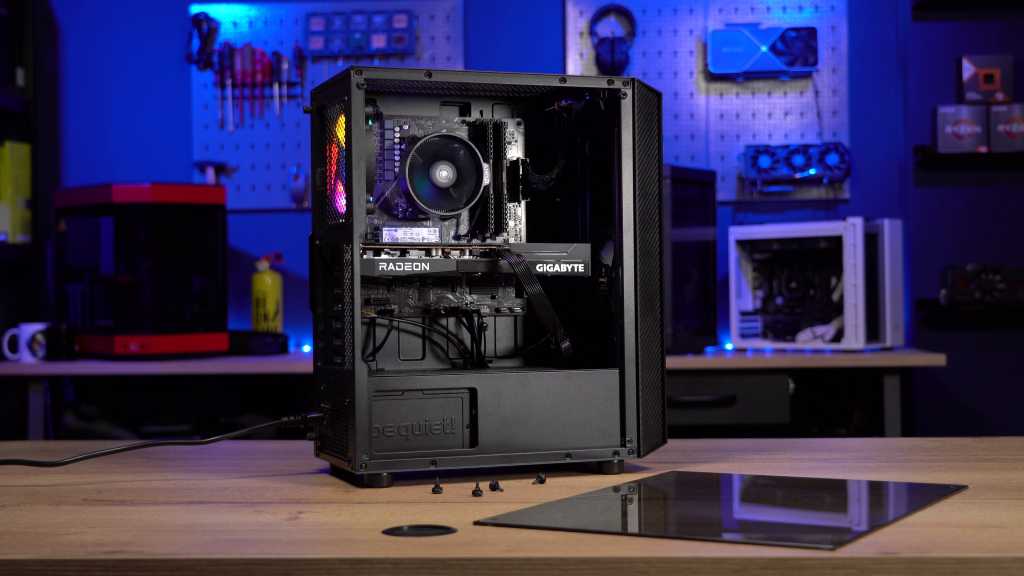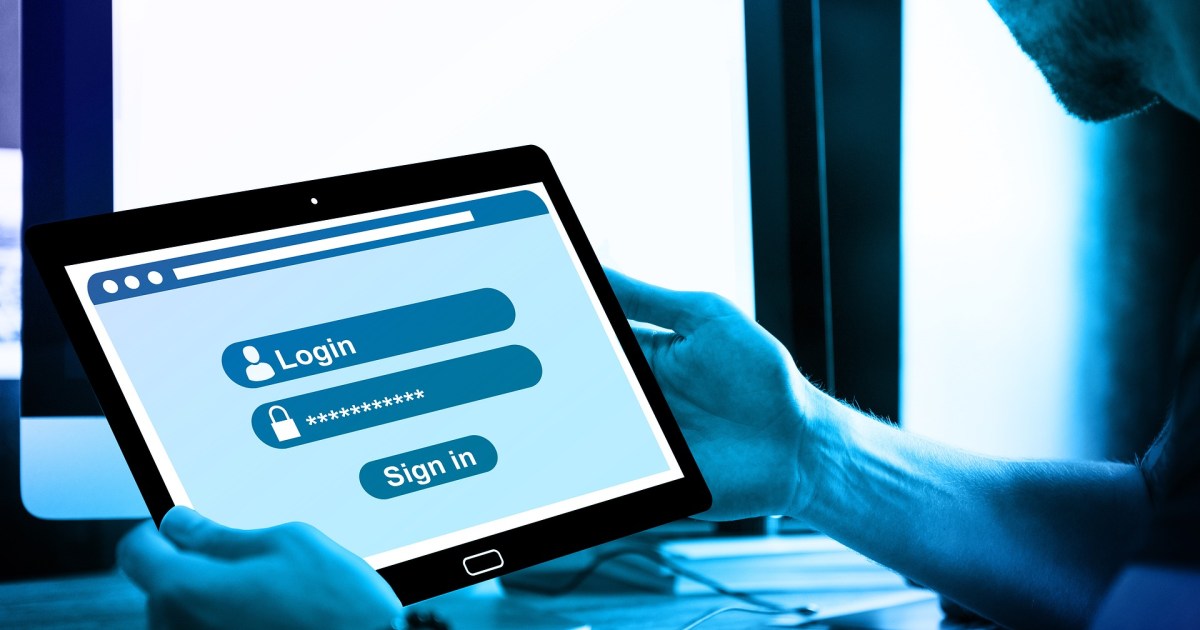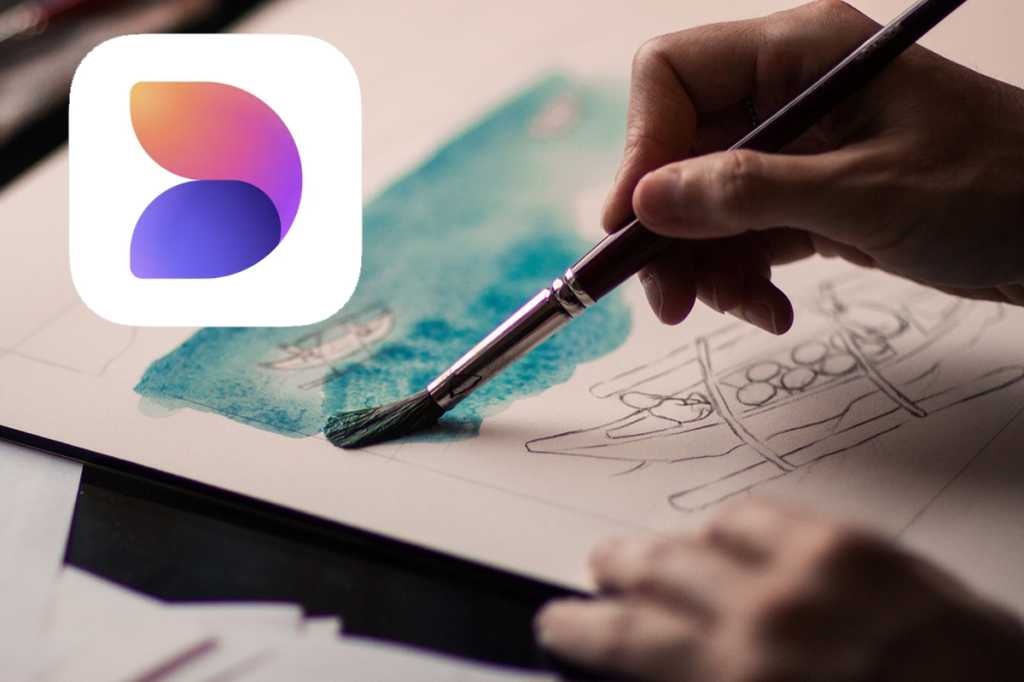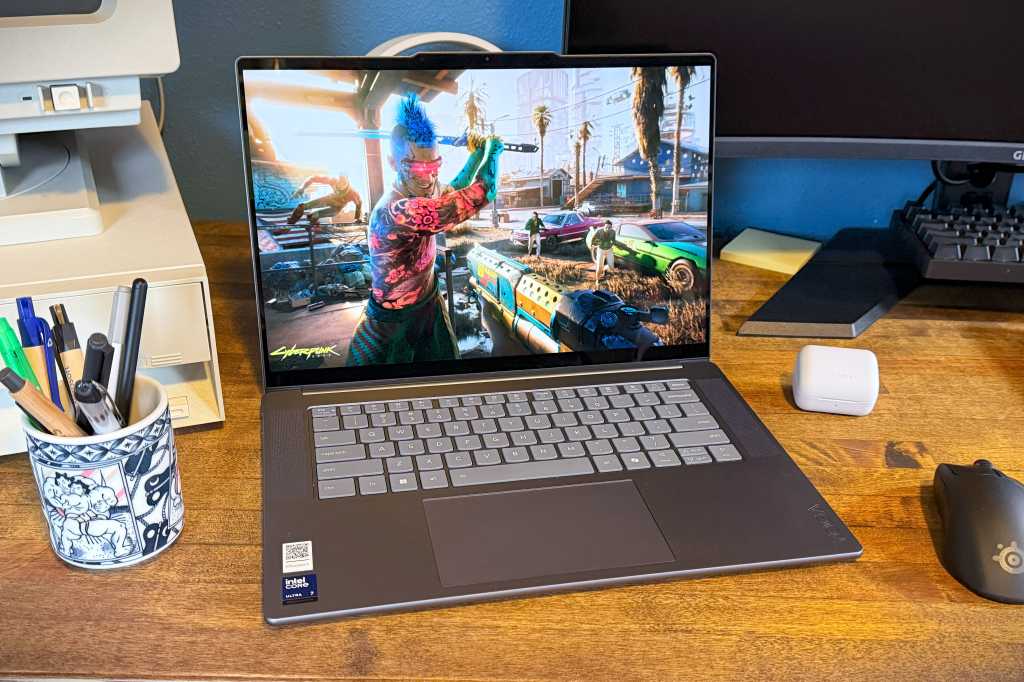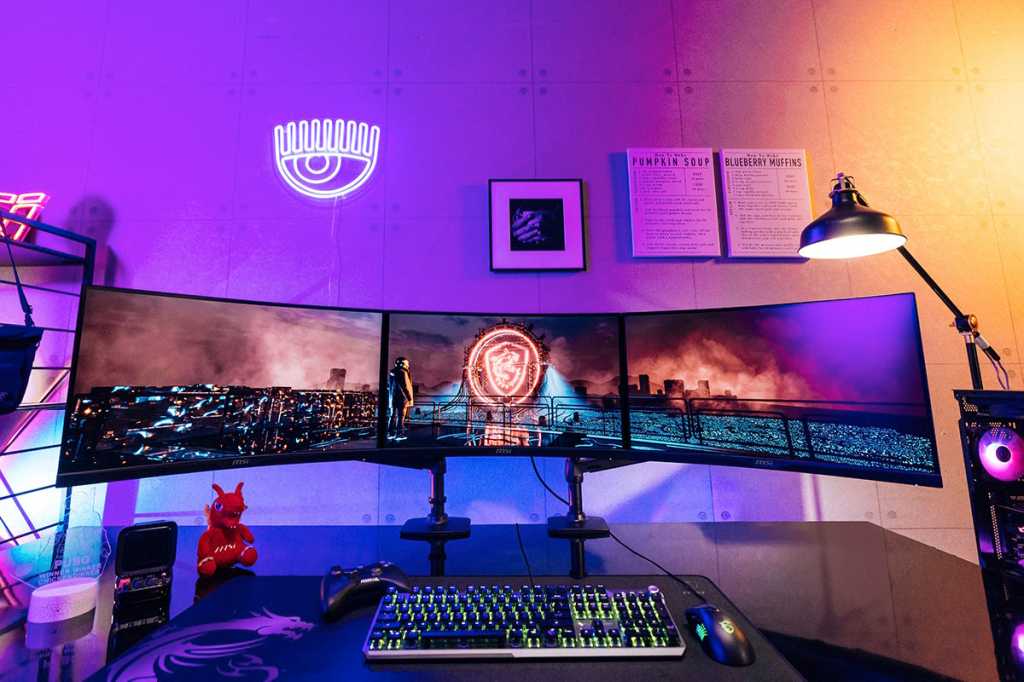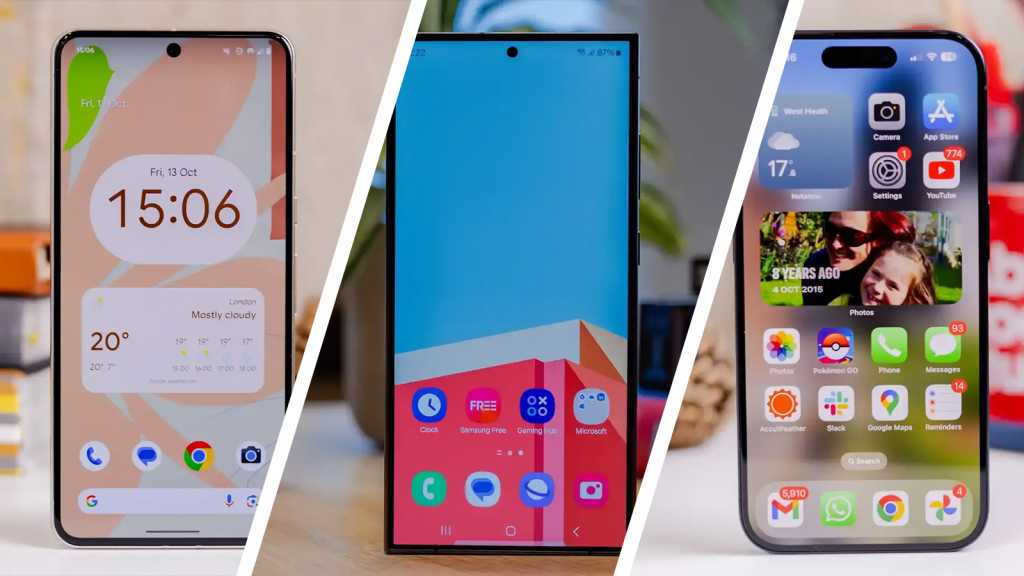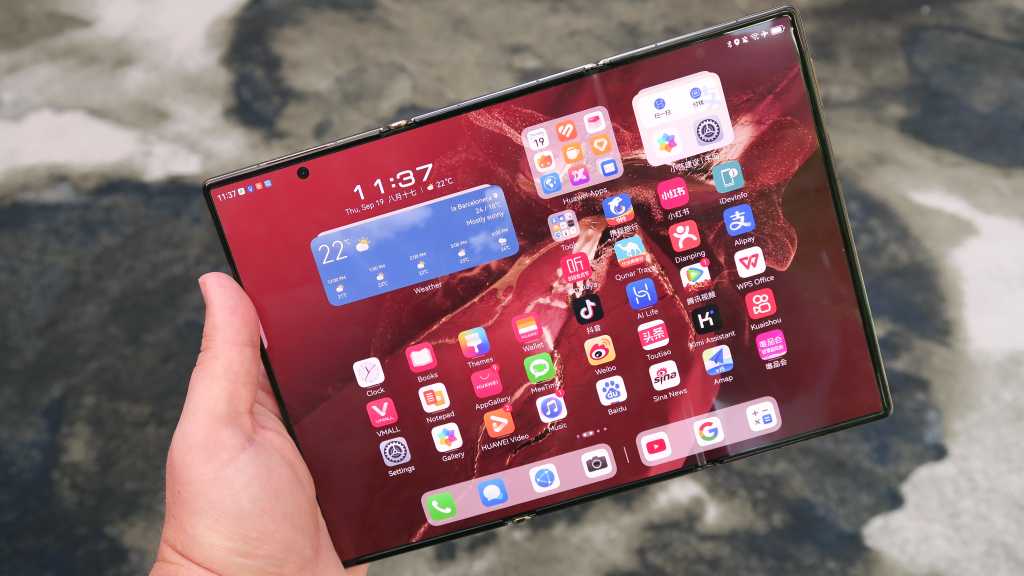Laptops offer incredible portability, but when primarily used at home with an external monitor, the laptop screen becomes redundant. Running your laptop in clamshell mode (closed lid) offers numerous benefits, including a larger display, improved ergonomics, and reduced power consumption. This guide details how to properly set up your laptop for clamshell mode, the advantages it provides, and best practices for optimal performance.
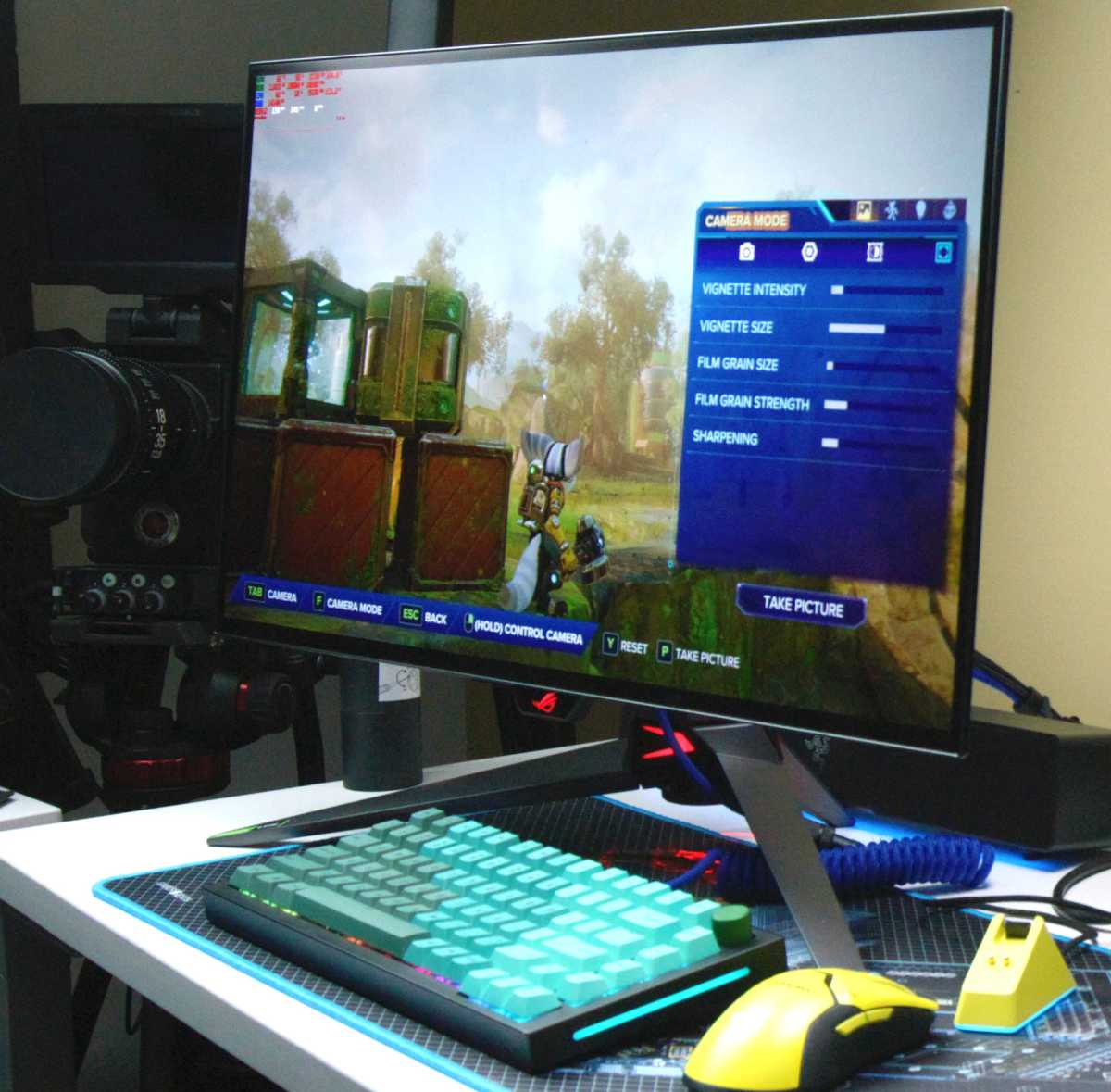 Large gaming monitor on desk used as external display for laptop
Large gaming monitor on desk used as external display for laptop
Essential Peripherals for Clamshell Mode
Using your laptop with the lid closed necessitates a few external accessories to replace the built-in keyboard, trackpad, and display.
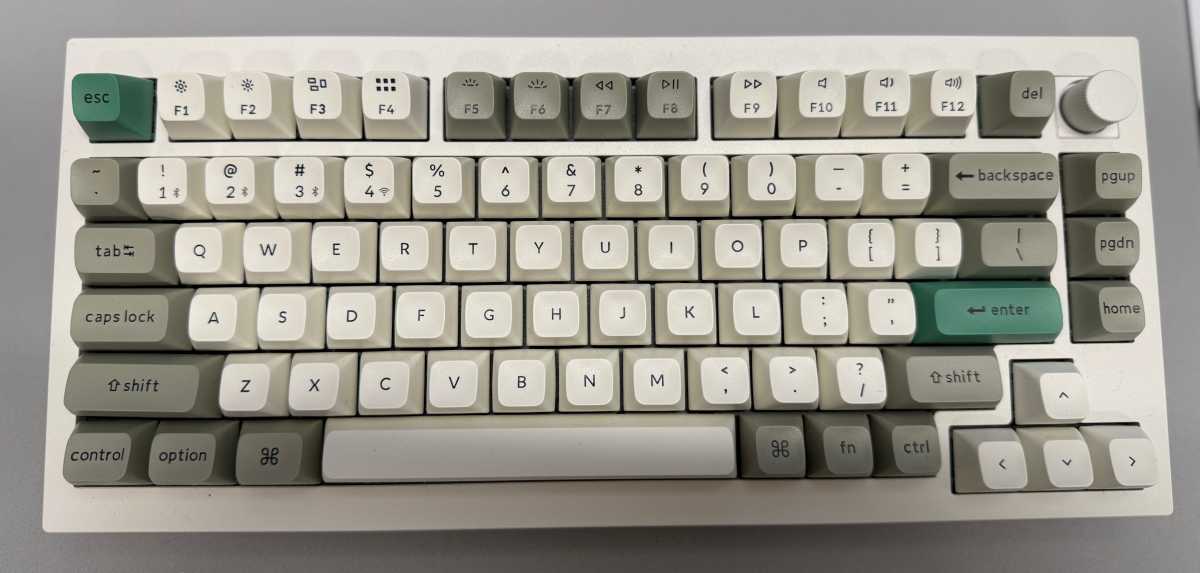 Compact mechanical keyboard used as external input for laptop
Compact mechanical keyboard used as external input for laptop
A separate keyboard and mouse are crucial. These can connect via USB, Wi-Fi dongle, or Bluetooth. For recommendations, explore our guides on the best wireless keyboards, best mechanical keyboards, best gaming keyboards, best wireless mice, and best gaming mice.
An external monitor is also required. Connection options include HDMI, DisplayPort, or USB-C/Thunderbolt, depending on your laptop’s specifications. Ensure compatibility between your monitor and chosen connection type. HDMI is the most common and often preferred option. Need a monitor? Consult our recommendations for the best home office monitors, best USB-C monitors, best 4K monitors, and best gaming monitors. For mobile work setups, our picks for the best portable monitors may also be of interest.
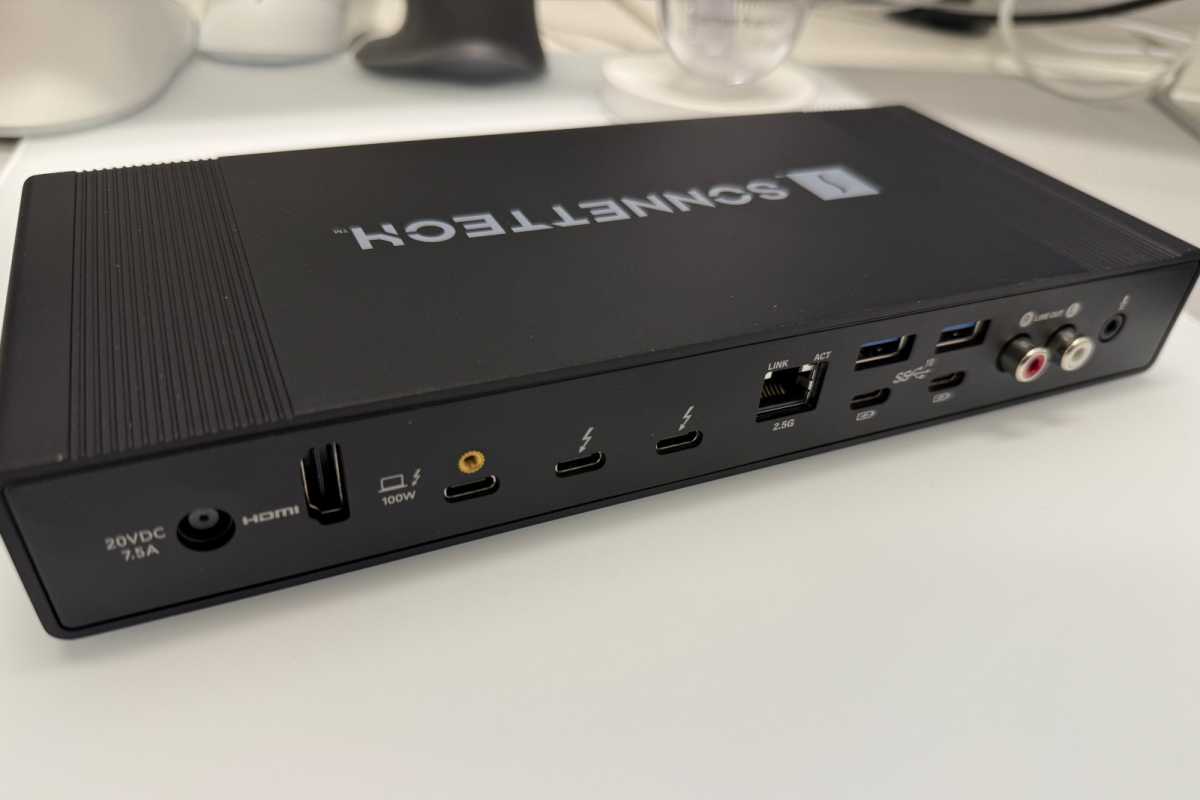 SonnetTech Thunderbolt dock close-up
SonnetTech Thunderbolt dock close-up
For Thunderbolt-enabled laptops, a Thunderbolt dock can create a robust desktop-like environment, providing additional USB ports and other functionalities. Explore our recommendations for the best Thunderbolt docks. If your laptop lacks Thunderbolt, a USB-C dock or hub can similarly expand connectivity, albeit with lower power and speed capabilities. See our expert recommendations for the best USB-C hubs.
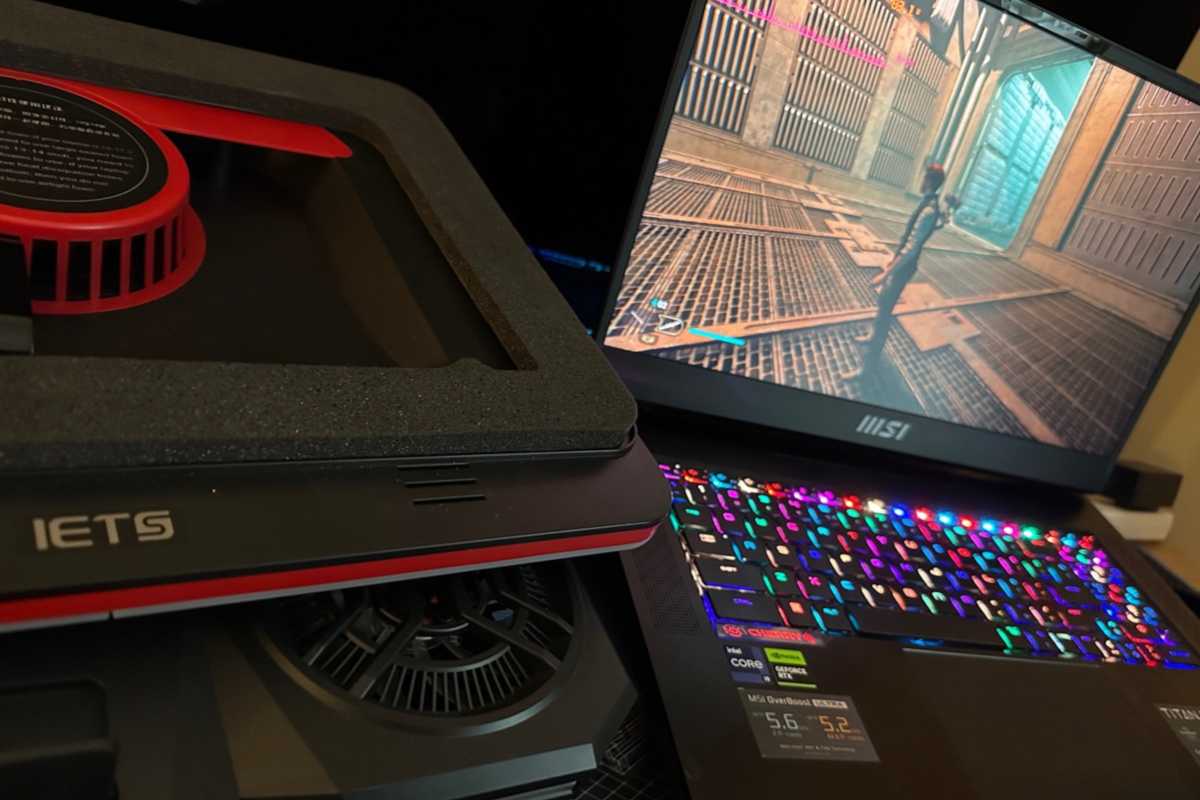 IETS laptop cooling pad next to MSI gaming laptop
IETS laptop cooling pad next to MSI gaming laptop
Finally, a laptop stand or holder is highly recommended. This keeps your workspace organized, elevates the laptop for better airflow, and helps manage heat.
Configuring Windows for Clamshell Mode
Preventing your laptop from sleeping when the lid is closed requires a simple adjustment in Windows settings.
Open the Start menu, search for “Control Panel,” and launch it. Navigate to “Hardware and Sound” -> “Power Options.” On the left sidebar, click “Choose what closing the lid does.”
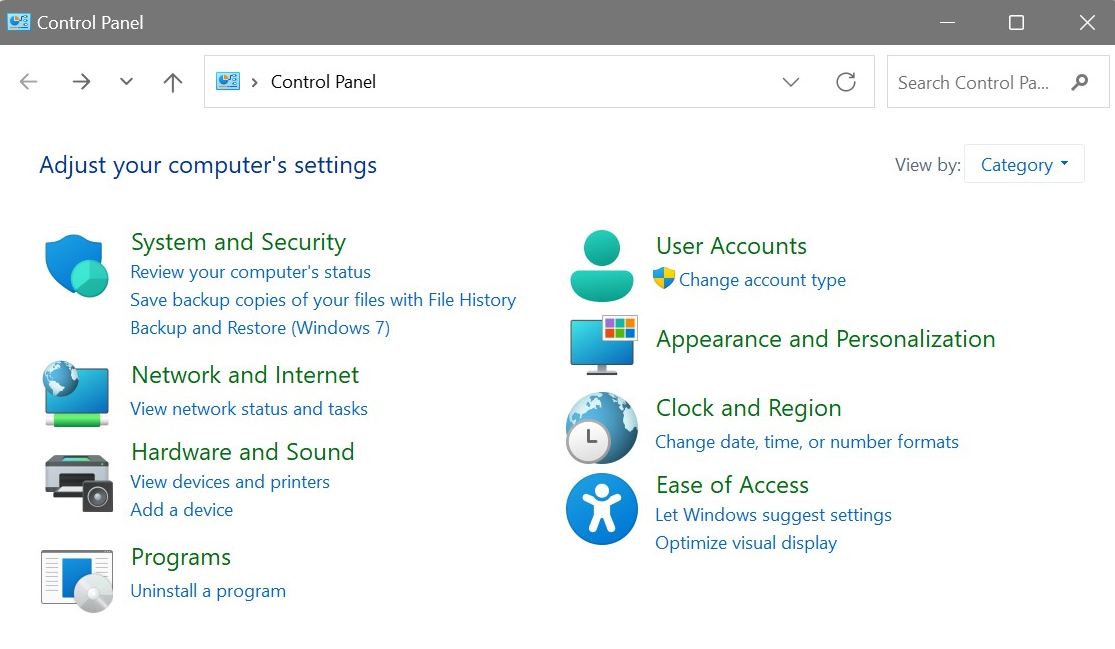 Windows 11 Control Panel settings to adjust laptop behavior screenshot
Windows 11 Control Panel settings to adjust laptop behavior screenshot
Under “When I close the lid,” change both “On battery” and “Plugged in” settings to “Do nothing” and click “Save changes.” Your laptop will now remain active when closed, enabling seamless use with an external monitor.
Best Practices and Considerations
While clamshell mode is generally straightforward, a few points warrant attention.
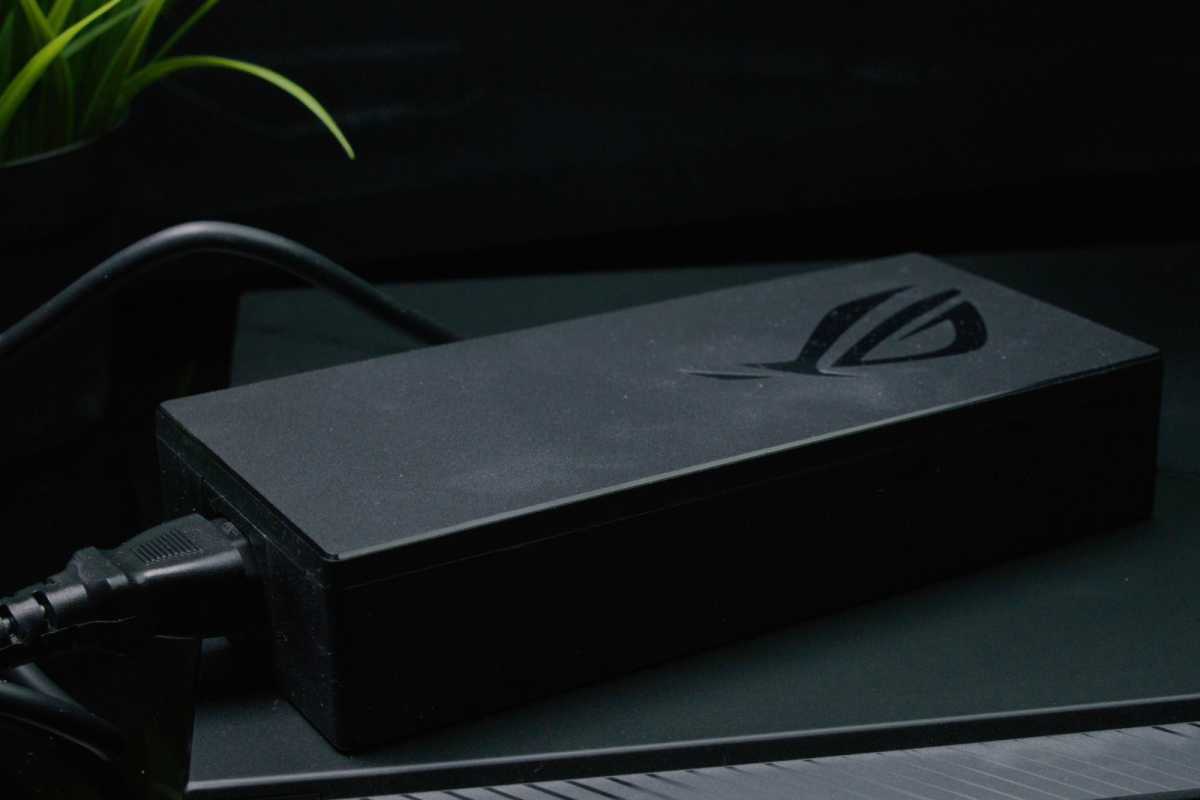 Laptop power adapter close-up
Laptop power adapter close-up
Keeping your laptop plugged in is advisable to avoid battery drain, especially during extended use with an external monitor.
Some high-performance gaming laptops, like the Razer Blade 16, expel air from the top. Closing the lid may obstruct airflow, leading to increased heat, especially during intensive gaming sessions. If your laptop vents from the bottom, sides, or back, this is less of a concern.
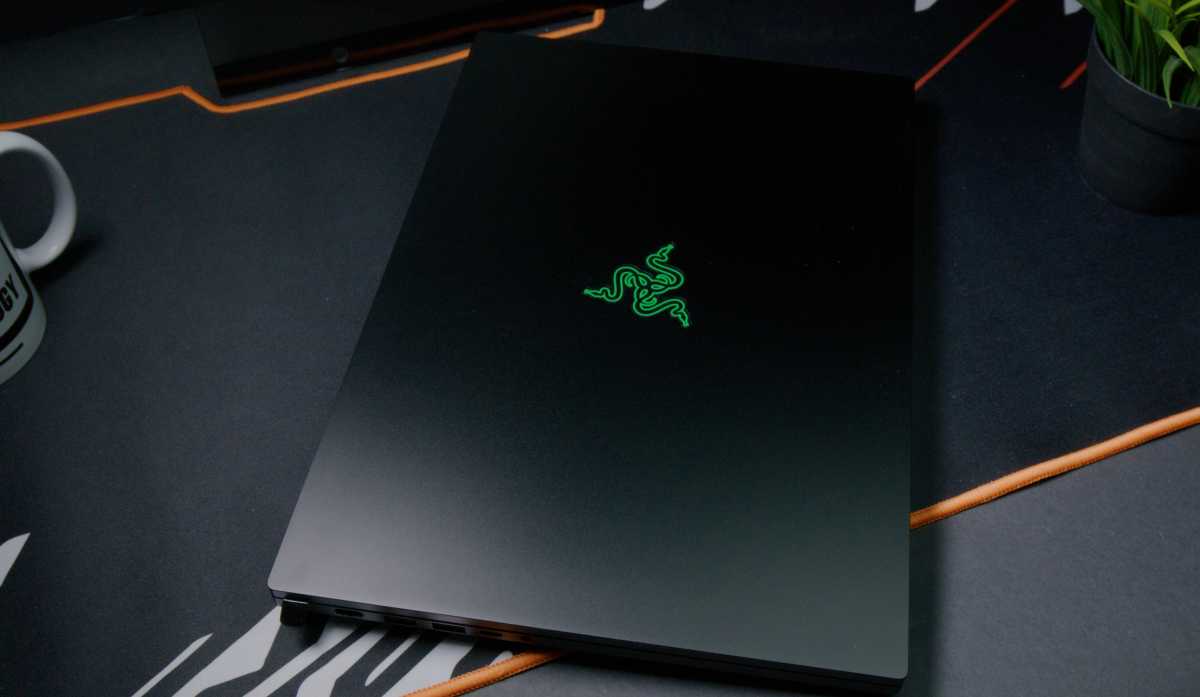 Razer gaming laptop closed with logo on lid hero
Razer gaming laptop closed with logo on lid hero
A laptop stand or cooling pad is crucial for maintaining optimal airflow and preventing overheating, particularly during demanding tasks. It also helps declutter your workspace.



